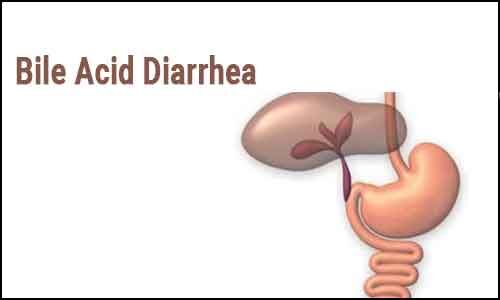- Home
- Medical news & Guidelines
- Anesthesiology
- Cardiology and CTVS
- Critical Care
- Dentistry
- Dermatology
- Diabetes and Endocrinology
- ENT
- Gastroenterology
- Medicine
- Nephrology
- Neurology
- Obstretics-Gynaecology
- Oncology
- Ophthalmology
- Orthopaedics
- Pediatrics-Neonatology
- Psychiatry
- Pulmonology
- Radiology
- Surgery
- Urology
- Laboratory Medicine
- Diet
- Nursing
- Paramedical
- Physiotherapy
- Health news
- Fact Check
- Bone Health Fact Check
- Brain Health Fact Check
- Cancer Related Fact Check
- Child Care Fact Check
- Dental and oral health fact check
- Diabetes and metabolic health fact check
- Diet and Nutrition Fact Check
- Eye and ENT Care Fact Check
- Fitness fact check
- Gut health fact check
- Heart health fact check
- Kidney health fact check
- Medical education fact check
- Men's health fact check
- Respiratory fact check
- Skin and hair care fact check
- Vaccine and Immunization fact check
- Women's health fact check
- AYUSH
- State News
- Andaman and Nicobar Islands
- Andhra Pradesh
- Arunachal Pradesh
- Assam
- Bihar
- Chandigarh
- Chattisgarh
- Dadra and Nagar Haveli
- Daman and Diu
- Delhi
- Goa
- Gujarat
- Haryana
- Himachal Pradesh
- Jammu & Kashmir
- Jharkhand
- Karnataka
- Kerala
- Ladakh
- Lakshadweep
- Madhya Pradesh
- Maharashtra
- Manipur
- Meghalaya
- Mizoram
- Nagaland
- Odisha
- Puducherry
- Punjab
- Rajasthan
- Sikkim
- Tamil Nadu
- Telangana
- Tripura
- Uttar Pradesh
- Uttrakhand
- West Bengal
- Medical Education
- Industry
Liraglutide better than standard of care for bile acid diarrhea, small trial claims

Denmark: Diabetes drug liraglutide is superior to colesevelam for reducing stool frequency prompting researchers to suggest considering liraglutide as a potential new treatment modality for bile acid diarrhea, says a recent study published in The Lancet Gastroenterology & Hepatology.
Bile acid diarrhea is an underdiagnosed disease that affects about 1–2% of the general population. Case reports have suggested glucagon-like peptide 1 receptor agonist liraglutide to be an effective treatment for bile acid diarrhea. Therefore, Martin L Kårhus, Center for Clinical Metabolic Research, Copenhagen University Hospital Herlev and Gentofte, Hellerup, Denmark, and colleagues aimed to investigate the safety and efficacy of liraglutide for treating bile acid diarrhea in a randomized, double-blind, active-comparator, double-dummy, non-inferiority clinical trial conducted in Denmark.
The study included patients aged 18–75 years with 75 selenium-homotaurocholic acid test (SeHCAT)-verified moderate-to-severe primary bile acid diarrhea. They were randomly assigned in the ratio of 1:1 to receive liraglutide (one daily subcutaneous injection up titrated from 0·6–1·8 mg per day over 3 weeks) or colesevelam (three capsules of 625 mg twice daily), the standard of care, for 6 weeks following one run-in week with no treatment.
The proportion of participants experiencing a reduction in daily stool frequency of 25% or greater after 6 weeks was the primary endpoint. Data from all participants were included in the analysis of the primary outcome. The non-inferiority limit was set to 15% in favor of colesevelam.
Based on the study, the researchers reported the following:
· 52 patients were enrolled between April 1, 2019, and Jan 31, 2021; 26 were assigned to liraglutide and 26 to colesevelam.
· 20 of 26 participants on liraglutide and 13 of 26 on colesevelam experienced a 25% or greater reduction in stool frequency, corresponding to a significant risk difference of −27% in favor of liraglutide.
· Liraglutide was therefore superior to colesevelam in reducing daily stool frequency.
· Mild nausea with a duration of 10–21 days was reported by six participants in the liraglutide group and by one participant in the colesevelam group. No other adverse events were reported.
The researchers conclude, "Liraglutide is superior to colesevelam in reducing stool frequency suggesting the consideration of liraglutide as a potential new treatment modality for bile acid diarrhea, although larger confirmatory trials powered for superiority are warranted."
Reference:
The study titled, "Safety and efficacy of liraglutide versus colesevelam for the treatment of bile acid diarrhoea: a randomised, double-blind, active-comparator, non-inferiority clinical trial," was published in The Lancet Gastroenterology & Hepatology.
DOI: https://doi.org/10.1016/S2468-1253(22)00198-4
Dr Kamal Kant Kohli-MBBS, DTCD- a chest specialist with more than 30 years of practice and a flair for writing clinical articles, Dr Kamal Kant Kohli joined Medical Dialogues as a Chief Editor of Medical News. Besides writing articles, as an editor, he proofreads and verifies all the medical content published on Medical Dialogues including those coming from journals, studies,medical conferences,guidelines etc. Email: drkohli@medicaldialogues.in. Contact no. 011-43720751


